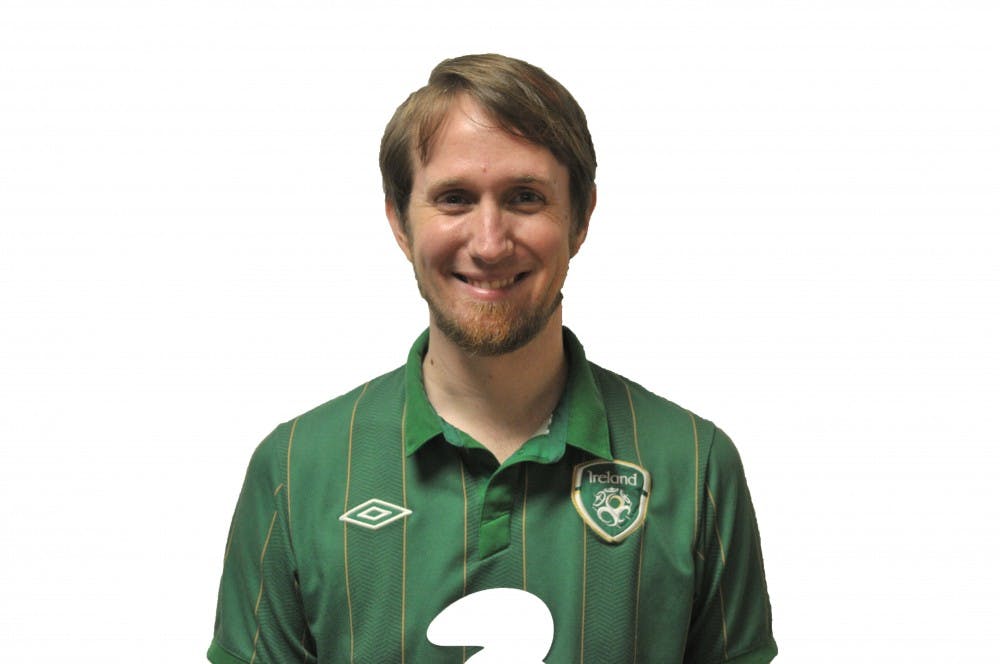L a w is a big deal in the United States. All three branches of government correspond to some function of the law. According to the American Bar Association , in 2011 there were 1.2 million licensed attorneys in the United States . A United Nations survey on criminal justice resources listed the U.S. as having 30,937 professional judges the same year.
With all these people who deal specifically with the law — not even counting the 670,000-plus police officers also listed in the survey — why is it, as a population, we feel the need to act as a jury on a regular basis?
The presumption of innocence is such a fundamental human right that a majority of democracies, constitutional monarchies, republics and even the U.N. have written it into their legal codes and constitutions.
Yet in cases such as Darren Wilson and Bill Cosby , among others, before a trial has started — and many times even after that — people have already concluded a verdict of innocence or guilt.
Even journalists’ code of ethics prevent this, in that a person must be referred to as a “suspect” and criminal activity as “alleged” before a verdict has been reached by the justice system.
Further, Islamic law, which some argue originated the presumption of innocence, not only maintains the burden of proof on the prosecution — Al-Nawawi hadith 33 — but even condemns suspicion. Saliheen hadith 1573: “Abu Hurairah (may Allah be pleased with him) said: The messenger of Allah (Praise be unto Him) said, ‘Beware of suspicion, for suspicion is the worst of false tales.’”
It is the job of the judicial system to determine innocence or guilt. This is achieved through a collection of forensic science and testimonies to determine the truth of what happened in a given situation based on factual evidence. Many times, that factual evidence is withheld from the public for various reasons, and in many cases, it can be the determining factor of a verdict.
So why are we unable to allow the criminal justice system to do its job without throwing our suspicions around?
One argument for this behavior is lack of confidence in the justice system. It is difficult not to agree with that sentiment when you have people like Ray Rice, Paris Hilton and Ted Kennedy getting off with light sentences compared to what your average citizen would receive for the same crime. It is this painfully obvious double standard within the justice system that causes frustration and the feeling of mistrust.
We must not permit ourselves or the court system to allow “scapegoat-ism,” in either the public or university judicial systems. Cases — such as that of Eden Jacobowitz in 1993 — not only harm the individual and others’ belief in the fairness of the system, but also embarrass the institution that pursues such cases.
Also, more care must be taken in ensuring that those who are being tried are being tried fairly by a jury of peers. We cannot continue to allow cases like those of Ronald Cotton , convicted of rape in 1987, released in 1995 ; Rolando Cruz , convicted of rape and murder in 1985, pardoned in 1995 ; James Bain, convicted for kidnapping, burglary and rape in 1974, exonerated in 2010 and George Kelly , executed in 1950 for murder, exonerated in 2003 , to still happen to this day.
The judicial system must maintain the same standards for all citizens, whether they be professional athletes, celebrities, politicians, federal employees or the guy working the counter behind McDonald’s . This would allow the average citizen to believe in a system that they currently feel is against them.
The current law enforcement and judicial systems are flawed and in need of reform. However that doesn’t excuse us from bypassing the system. We must work within the confines of the law to affect change. Riots and vigilantism only serve to release anger, not to pave the road to change. Even when confronted with the loss of their 12-year-old son, Tamir Rice, to a police shooting last Saturday, the parents asked that “the public ... demonstrate peacefully.”
Martin Luther King Jr. said, “The limitation of riots, moral questions aside, is that they cannot win and their participants know it. Hence, rioting is not revolutionary but reactionary because it invites defeat. ”
Shawn Kelley is an LPS sophomore studying Japanese and history. His email address is skelley@sas.upenn.edu. "A Vet-ted Mind" usually appears every other Monday.
The Daily Pennsylvanian is an independent, student-run newspaper. Please consider making a donation to support the coverage that shapes the University. Your generosity ensures a future of strong journalism at Penn.
DonatePlease note All comments are eligible for publication in The Daily Pennsylvanian.





